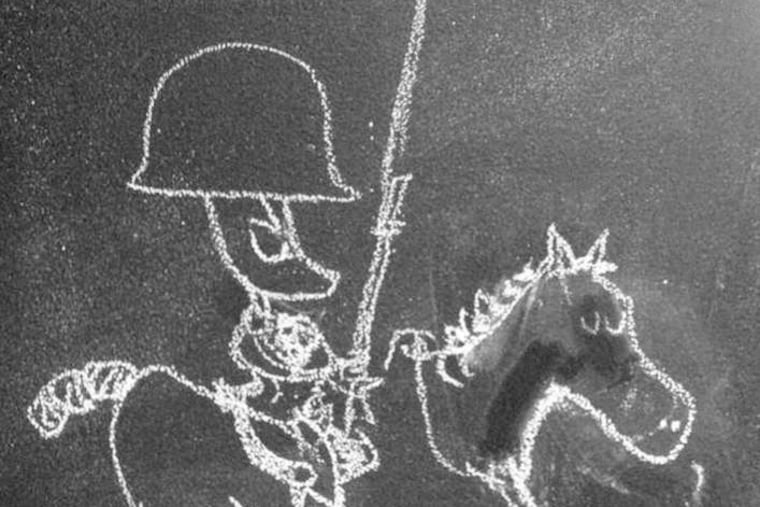Debate about international affairs always found its way home
FOR ANYONE who's ever said that Americans don't care about foreign policy . . . maybe they're right. In their crucial third and final debate just 15 days before the neck-and-neck 2012 election, which was supposed to focus on foreign policy, President Obama and his GOP challenger, Mitt Romney, frequently brought the conversation back to the economic issue

FOR ANYONE who's ever said that Americans don't care about foreign policy . . . maybe they're right.
In their crucial third and final debate just 15 days before the neck-and-neck 2012 election, which was supposed to focus on foreign policy, President Obama and his GOP challenger, Mitt Romney, frequently brought the conversation back to the economic issues they think that undecided voters care about most. At times, the talk turned to steelworkers in Ohio, math and science education, and classroom standards in Massachusetts, Rhode Island and Arizona - which were not foreign countries at last check.
When the White House hopefuls did talk international affairs Monday night - in a somewhat sluggish and lackluster affair before a hushed room in Boca Raton, Fla., and more than 50 million TV viewers - they showed that on most matters in 2012 the Republicans and Democrats differ more on style than on substance, if they differ at all.
"Nowhere in the world is America's influence greater than it was four years ago," claimed Romney, who used the debate as a forum to charge that Obama has not been totally steadfast in supporting Israel, and that Obama supports cuts in defense spending and had crisscrossed the Arab world in "an apology tour." That last charge has been ridiculed by most fact-checkers and was forcefully knocked down by the Democratic incumbent.
"We've got to make sure our economy is strong at home so that we can project power abroad," Obama said. He got off one of the few zingers of the night when he charged that Romney blindly supports more defense spending - when he criticized the president for a drop in the total number of Navy ships to lower than in 1916 - rather than considering cost-efficient programs that could make the military more flexible.
"We have these things called aircraft carriers that planes can land on them," Obama said of comparing today's military to that of the World War I era, noting that we also have fewer horses and bayonets. "It's not a game of 'Battleship' where we're counting ships."
There were no noteworthy gaffes, and stylistically the candidates pretty much fought to a draw. Seated across a table from one another, they provided few of the heated fireworks that ignited last week's town-hall debate on Long Island. Obama continued with the aggressive posture that he lacked in Debate One, accusing the Republican nominee of flip-flops and distortions.
But Romney continued to accuse the president of projecting weakness and lack of focus in the Middle East. "We can't kill our way out of this mess," he said. He also set a hard date of 2014 for bringing home American troops from Afghanistan, which analysts suggested was a reversal from previous statements in the campaign.
But what stood out most was the lack of major differences in many areas - on the uprising in Libya, on the ouster of former U.S. ally Hosni Mubarak in Egypt, on what Romney called "crippling sanctions" on Iran for its nuclear program. When the hot-button issue of U.S. drone strikes sanctioned by Obama came up for the first time in a debate, Romney said he totally supported them.
The showdown came at a critical tipping point in the 2012 campaign, with a domestic drone bombardment of public-opinion polls - at a dizzying rate of a dozen or more every day - showing a dead heat between the former Massachusetts governor and a historic first African-American president seeking a second term. There's a virtual tie in national tracking polls and in the nine or 10 "battleground states" that are expected to decide the Electoral College. Election Day is in exactly two weeks.
In spite of that, most experts predicted that TV viewership would be down from the record-high levels of the first two contests - partly because voters tend to be more interested in bread-and-butter issues than in foreign affairs, but largely because the Commission on Presidential Debates slated the showdown opposite Monday Night Football as well as Game 7 of the National League Championship Series.
The poor scheduling wasn't the only way that American voters were shortchanged going into the debate. A list of topics that leaked out in advance said almost all of the debate would focus on the heavily Arabic zone running from North Africa to Afghanistan, along with issues such as terrorism, Iranian nukes and the Arab Spring - with just one segment on China and nothing specific on Europe, Africa or Latin America. If you had the eurozone, Brazil or African famine in your debate drinking game, you were OK to drive home Monday night.
Going in, all eyes were focused on Libya, where the Sept. 11 act of terror that killed U.S. Ambassador Chris Stevens and three others has risen to center stage. Romney and his surrogates have charged that the Obama administration ignored requests for stepped-up security beforehand and deliberately misled the public after the attack.
But Obama fought back by urging voters to look at the big picture, that his efforts helped rid Libya of its murdered dictator, Moammar Gadhafi. "We got rid of a despot that killed more Americans than Osama bin Laden," he said.